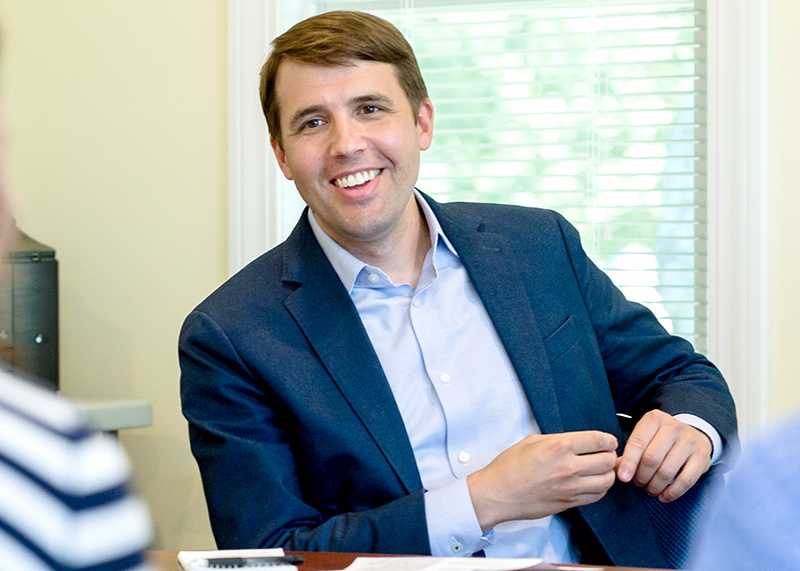West Virginia Law Blocks Gender-Affirming Care for Youth
The new law seeks to restrict minors from transitioning, but does allow for exceptions in cases where minors may attempt self-harm.

Last week, West Virginia Republican Gov. Jim Justice signed a bill into law banning gender-affirming care for minors, becoming the twelfth state to restrict doctors from prescribing such treatments.
Beginning in 2024, anyone under 18 is barred from accessing hormone therapy, puberty blockers, and gender-affirming surgery, although physicians in West Virginia say that surgery isn’t recommended for minors.
Doctors who prescribe such treatments can potentially face disciplinary measures or be threatened with the loss of their license to practice.
As with similar bans on gender-affirming care in other states, physicians can prescribe gender-affirming care — including potentially unnecessary surgical interventions — for minors who are intersex or are born with “sexual development disorders.” There is also an exception for doctors treating individuals for infections or disorders caused by a previous transition attempt.
Additionally, West Virginia’s law — unlike the 11 other states with bans on gender-affirming care — contains an exemption that would allow doctors to prescribe medical therapy for a teenager if they are considered at risk for self-harm or suicide, reports The Associated Press.
To qualify for such an exemption, a patient must receive parental consent and two separate diagnoses of “severe gender dysphoria” from two doctors, including a mental health provider.
West Virginia Republicans, like GOP lawmakers in other states, have argued that gender-affirming treatments are scientifically unproven and lack sufficient research on their long-term effects. They argue that prescribing treatments that aid a person in transitioning may overlook underlying emotional or mental health issues.
Proponents of such bans also argue that, particularly with increased LGBTQ visibility in society, young people are being overly influenced by peer pressure and social media to identify as transgender or outside the gender binary, and, if unchecked, would pursue medical interventions that they would later come to regret later in life.
However, most major medical organizations, including the American Medical Association, the American Academy of Pediatrics and the American Psychiatric Association, support allowing trans-identifying children to access gender-affirming care, with the approval of their parents and personal physicians.
Lawsuits have been brought against bans in Alabama and Arkansas, with federal judges temporarily blocking those states’ laws from taking effect. Whether a similar lawsuit in West Virginia will be launched remains to be seen.
Fairness West Virginia, the state’s top LGBTQ advocacy group, condemned the law as a form of government interference into family and individual medical decisions, but offered advice to transgender youth and their parents, encouraging them to consult with doctors to see if they qualify for the “severe gender dysphoria” diagnosis exemption and ensure any current prescriptions are filled.
The organization also noted that youth struggling with their gender identity are still able to access mental health care services, which are not prohibited under the law, and that the law does not prevent parents of transgender children from seeking out health care services in other states.
“Lawmakers have no business telling parents whether or not they can take their child to the doctor to receive medically-necessary, lifesaving treatment,” Isabella Cortez, the gender policy manager for Fairness West Virginia.
Referring to the law’s two-doctor diagnosis exemption, Cortez said, “While this bill was made better, it’s still unacceptable that our lawmakers would even consider legislating important health care decisions that should be left up to the patients, their families, and their providers.”
“Our lawmakers need to stop trying to incite these pointless culture wars by inventing problems that don’t exist,” the group’s executive director, Andrew Schneider, said in a statement. “Gender-affirming care is medically necessary and practiced by skilled doctors who adhere to strong, peer-reviewed professional standards. Not a single doctor in West Virginia said this bill was necessary, and yet our lawmakers wasted countless hours and taxpayer dollars to pass it. Think of all the other problems — real problems — facing our state that we could have tackled instead of fighting over this bill.”
Support Metro Weekly’s Journalism
These are challenging times for news organizations. And yet it’s crucial we stay active and provide vital resources and information to both our local readers and the world. So won’t you please take a moment and consider supporting Metro Weekly with a membership? For as little as $5 a month, you can help ensure Metro Weekly magazine and MetroWeekly.com remain free, viable resources as we provide the best, most diverse, culturally-resonant LGBTQ coverage in both the D.C. region and around the world. Memberships come with exclusive perks and discounts, your own personal digital delivery of each week’s magazine (and an archive), access to our Member's Lounge when it launches this fall, and exclusive members-only items like Metro Weekly Membership Mugs and Tote Bags! Check out all our membership levels here and please join us today!

























You must be logged in to post a comment.